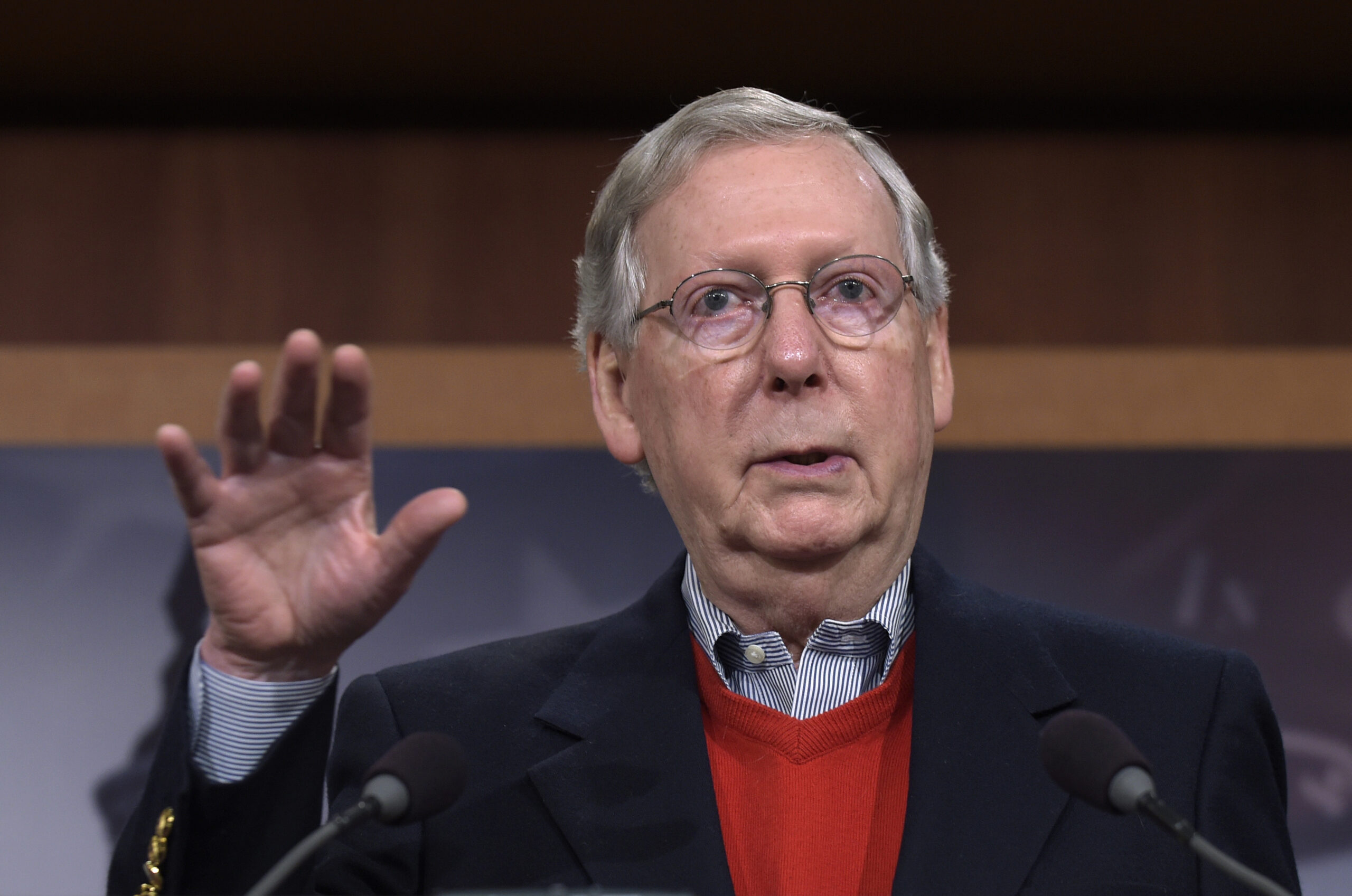Senate Republicans are poised to speed up the the confirmation of hundreds of President Donald Trump’s nominees by pushing through a proposed rules change that would dramatically limit the debate time required to confirm district judges and most executive nominations.
Senate Majority Leader Mitch McConnell, R-Ky., who has expressed support for the rules change, is expected to set up a vote on the matter this week. In a speech on the Senate floor, the Kentucky Republican accused Democrats last week of “unprecedented obstruction” when it comes to “non-controversial” nominations and claimed the resolution was a way to “restore the Senate’s tradition in the area.”
“A minority of senators have used Senate procedure to systematically prevent the president of the United States from putting a full team in place,” McConnell said in his floor remarks. “The American people deserve the government they elected.”
McConnell added that Democrats would also benefit from the rules change and warned that the status quo would “virtually guarantee that any future Democrat administration is subjected to the same paralysis.” “This is a change the institution needs,” he added.
The rules change, introduced by Republican Sens. Roy Blunt of Missouri and James Lankford of Oklahoma, would reduce debate time to up to two hours for most lower-level executive branch posts and district judges after cloture is invoked. Currently, nominations face up to 30 hours of post-cloture debate. Supreme Court and circuit court nominees, Cabinet-level positions and roughly a dozen board and commissions positions would be exempt from the rules change.
The Senate resolution needs 60 votes to move forward, and Republicans are expected to fall short of the 60-vote threshold required to implement the rule as a standing order. Senate Republicans can still change the rules if they invoke the so-called “nuclear option” and pass the resolution with a simple majority of 51 votes. McConnell has not publicly indicated if Republicans would first attempt to pass the measure with at least 60 votes or if he was willing to push through the resolution with only a simple majority. But with 53 seats in the upper chamber, Republicans could pass the resolution without help from Democrats under the “nuclear option” as long as they have 51 votes.
Senate Minority Leader Charles Schumer, D-N.Y., spoke out against the rules change resolution last week after McConnell brought it up on the Senate floor.
“McConnell’s approach has always been to manipulate Senate rules when it helps him and then change Senate rules when the tables turn,” Schumer said in a statement. “This is just another step in his effort to limit the rights of the minority and cede authority to the administration.”
McConnell infamously denied former President Barack Obama the opportunity to fill a Supreme Court seat left vacant following the death of former Associate Justice Antonin Scalia.


